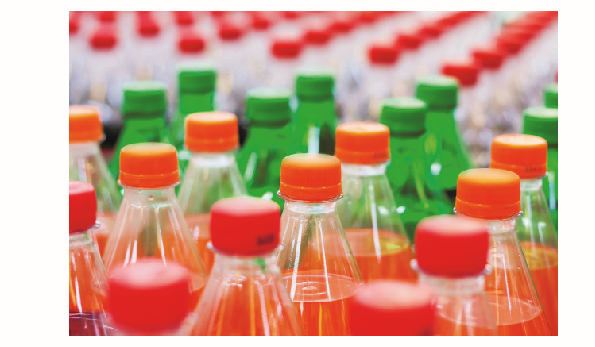Water Shortage, Over Consumption Of Sugary Drinks And Implications For Public Health
...Again, Advocates Demand Appropriate Taxes On Sugar-Sweetened Beverages

By Edu Abade
Despite public outcry for governments to provide potable water at the federal, state and local government levels, there has been a constant and sustained effort to deny people of their right to water as a fundamental human right.
The situation has led to a significant reduction in the population of people who have access to pipe borne water globally, as people’s right to water is increasingly being denied by the day.
Water shortage has made most poor and vulnerable people in low income countries to resort to the consumption of Sugar-Sweetened Beverages (SSBs) with severe health implications for public health.
Public health advocates and activists campaigning for the right to public water made the submissions at a Webinar organized by the Corporate Accountability and Public Participation Africa (CAPPA) under the Our Water, Our Right Coalition in collaboration with the SSBs Tax Coalition titled: Interlink Between Access to Water and SSBs Consumption on Friday, August 30, 2024.
Speaking at the virtual meeting, Programme Officer of CAPPA, Gideon Adeyeni, lamented that most Nigerians are now being forced to source water from vendors and pure water packaging companies, private boreholes and wells due to the government’s failure to provide public water.
He recalled that there was a time when the Lagos State Water Corporation made public water available even in Surulere, Ikoyi, Ikeja and even in suburbs like Ajegunle in Ajeromi Ifelodun Council of the state, adding that it was saddening that water facilities have been made redundant by lack of funding across Lagos State.
“The Lagos State Government and the governments of other states no longer prioritize the provision of water to the people, which had imposed serious health implications for Nigerians. Water is a basic right, but what the government seems to be saying is that the people should be thirsty and remain thirsty.
“The issue of cost is also significant, leading to rationing of water in most households. Families now spend at least N300 daily per person, which amounts to between N1000 and N1200 for each household or about N30000 monthly.
“To make matters worse, corporations are now mining gold, lithium and other solid minerals and releasing waste water, thereby polluting water bodies including streams, rivers in the rural areas across the country. Wells are no longer reliable sources of clean water due to pollution from mining and crude oil exploration activities that contaminate our water bodies,” he stated.
Adeyeni, who also pointed out that privatization of water remains another major challenge in Lagos, Rivers, Bauchi and other states of Nigeria, stressed the need for a collective solution to end the ‘corporate capture’ of water in the country, adding: Water is life and must be accessible by all.”
In his presentation titled: SSBs: Diet-related NCDs and the Impact of Sugary Drinks Tax, a Public Health expert with the Department of Periodontology and Community Dentistry, College of Medicine, University of Ibadan, Dr. Francis Fabgule, established a clear connection between lack of water and over-consumption of sugary drinks.
He argued that sugary drinks constitute common risk factors for Non-Communicable Diseases (NCDs), insisting that unhealthy diets, tobacco use, air pollution, harmful use of alcohol and physical inactivity are other risk factors.
Fagbule explained that water remains vital for life as it helps to regulate body temperature, transport nutrients, eliminate wastes from the body and ensures hydration, which is essential for maintaining bodily functions and overall health.
He maintained that non-alcoholic beverages that contain harmful sugars including energy drinks, sports drinks, flavoured drinks, soda, sweetened tea and coffee, as well as fruit-flavoured drinks have no nutritional benefits and are neither essential nor desirable component of people’s diets.
“Sugary drinks are not and should not be replacements for potable water. They are actually risk factors for diseases such as obesity, type 2 diabetes, abnormal or excessive fat accumulation, cardiovascular diseases, certain cancers and joint problems, as well as oral diseases like tooth decay and gum infections.
“Industry argument that retailers and manufacturers do not absorb the full cost of SSBs tax is not sustainable. Therefore, imposition of appropriate taxation and an increase in the prices of SSBs will reduce their consumption,” he said.
Citing the example of Mexico where appropriate taxes were imposed on SSBs, he said the purchase of sugary drink reduced in 2014 by an average of 6 percent in the first year, adding that among the poor, the average reduction was 9 percent throughout 2014, while there was an increase in consumption of healthier substitutes, just as purchase of water and other untaxed beverages rose by 4 percent in 2014.
He also cited Oakland where the purchase of sugar-sweetened beverages dropped by 27 percent, signaling the potential impact of a national legislation
On the public health gains of SSBs tax, he insisted that appropriate taxation on the products increases awareness about the harmful effects of sugary drinks, engender behaviour change, reduce the consumption of soft drinks, bring about improved health outcomes and increase government revenues, among other advantages.
He concluded his presentation by quoting Director of Health Promotion at the World Health Organization (WHO), Dr. Ruediger Krech: “Taxes on sugar-sweetened beverages can be a powerful tool to promote health because they save lives and prevent diseases…”
In his intervention, Programme Manager of CAPPA, Abayomi Sarumi, who explained the commercial determinant of sugary drinks in relation to public health, maintained that corporate entities and manufacturers of SSBs leverage industry tactics to market their products and that appropriate taxation is not a punishment, but a means of reducing consumption of the products.
On her part, Programme Officer (Water Campaign) at CAPPA, Sefa Ikpa, urged governments at all levels to invest heavily in the water sector and not transfer their responsibilities to investors who are only interested in making profits.
“The cost of healthcare and provision of public water should be on the government. As such, Nigerians should mobilize in their numbers to support the water and SSBs coalitions to demand access to clean, accessible and affordable, and proper taxation on sugary drinks across the country,” she concluded.












